The French Boys Quadrilogy is available in four volumes through NQV Media.
From the moment the Lumière Brothers first wowed audiences with their motion picture La Sortie des Ouvriers de l’usine Lumière to Georges Méliès groundbreaking A Trip to the Moon, France has sat at the heart of cinema. In the years following the Lumière Brothers and Méliès, France would continue to break new ground in film; for example, Alice Guy-Blaché would blaze a path for women with L’enfant de la Barricade in 1906, while LGBTQ+ representation would take a leap forward with Club de femmes (1936), Olivia (1950) and the groundbreaking Un Chant D’Amour (1950). Over the years, France has viewed short-form films as an essential part of the cinematic landscape, and its commitment to the short is ever-present in LGBTQ+ storytelling. NQV’s new collection of gay shorts, The French Boys, is split over four volumes and includes an incredible array of films. Each volume takes us to new places through journeys of love, family, grief, friendship, adolescence and identity in a must-own collection of short films for anyone passionate about LGBTQ+ storytelling.
READ MORE: THE DUTCH BOYS
The French Boys (Volume One)
Watch now on Amazon, Vimeo and Peccadillo Pod.
SO LONG, PARIS! (Director: Charles Dudoignon-Valade)
Divorce can be a challenging process for children at the best of times; often, they live in the hope that their parents will find love again despite the odds. But, when this revolves around sexuality, this challenge can be even more profound. Many parents who leave a husband or wife due to ‘coming out’ find themselves caught in a trap. Do they tell their children that they are gay and introduce them to their new same-sex partner? Or do they hide their sexuality for fear that it may make an already tricky separation worse? For Lucy, her parent’s separation is an open wound as she visits her father in Paris. But for her father, her visit is wrapped in a dilemma: does he tell Lucy he has met a man? As Lucy’s return to London draws near, this decision will ultimately be taken out of his hands in a film that is both a love letter to Paris and a tender coming-of-age drama. The eagle-eyed amongst you will also notice a beautiful homage to the famous 1956 French short, The Red Balloon (Le Ballon Rouge).
FREED ‘Baltringue’ (Director: Josza Anjembe)
Issa is just a few days away from his release from a youth detention centre when he encounters a new inmate, Gaëtan. For months, Issa has kept a lid on his sexuality, emotions and anger, spending his time in the carpentry workshop preparing for a career on release. But Gaëtan seems different from the other inmates; he loves poetry and doesn’t hide his potential interest in Issa. However, with just days to go before freedom, is a boy worth the risk? Or are freedom and safety more important? Freed beautifully explores the apprehension and fear of first attraction within a hostile and homophobic environment. Here, Issa is caught between wanting to trust Gaëtan and fearing the possible trap that may lay before him. Many gay men watching will fully identify with this dilemma; after all, what are Gaëtan’s intentions? Issa’s final choice tests this very question, with the answer painfully laid out before him just minutes before his release.
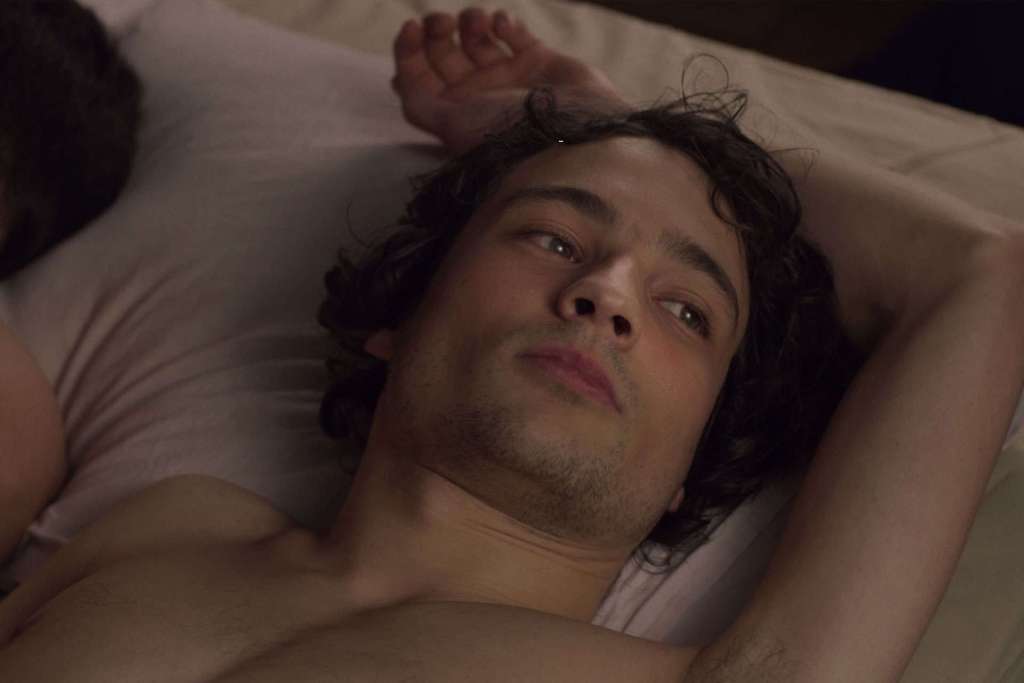
VINCENT BEFORE NOON ‘Vincent avant midi’ (Director: Guillaume Mainguet)
Over time, many families find themselves torn apart by disputes, separation, or anger. Meanwhile, for many LGBTQ+ people, separation from family due to homophobia sadly remains far too familiar. But at what point do we try and move on, forgive or heal the pain of the past? For some, this opportunity never comes, but for Vincent, his distant father suddenly and unexpectedly arrives on his doorstep just as he is packing up his life, ready to move. Taken by surprise, Vincent is unclear on the reasons for his father’s appearance until his father’s reason for reaching out suddenly becomes apparent. Mainguet’s delicate exploration of family breakdown and past pain never seeks to provide the audience with all the answers. Instead, this is merely an opening that may or may not help the healing process to flourish.
SUNSET CEMETERY ‘Extérieur crépuscule’ (Director: Roman Kané)
We all have different reactions to grief and loss; for some of us, it may make us question our place in the world. For others, the pain and sadness are tied to a deep feeling of emptiness as the departed leaves a void in our lives. Still mourning the loss of his brother, Joseph’s sense of grief and loss is embedded in a need to live a life free from the fears surrounding him. But can he find someone and something meaningful as he tentatively lets go of his sexual doubts and embraces a new world? Here, Sunset Cemetery weaves together the stress, freedom and fear of coming out with the urgent need to live free of restraints and celebrate life following a painful loss.
BEAUTY BOYS (Director: Florent Gouëlou)
In a small village in rural France, the stage is set for an evening of performances. The audience, the townsfolk and the performers, the town’s young people. However, as three young people practice a daring drag act, two older boys who are due to perform a rap look on with disdain. On stage is aspiring drag artist Leo, while his big brother and aspiring rapper, Jules, looks on with horror. But as the big night draws near, will Jules allow his brother to get up on stage in drag? Or will he join in with the homophobic comments of his best friend? Director Florent Gouëlou’s tale of brotherly love, support and internalised homophobia is an utter joy to watch and, without doubt, a highlight of The French Boys: Volume One. Here, identity and sexuality merge with themes of community, friendship and family as two worlds collide in an ocean of sequins, rap, glitter and tracksuits.
The French Boys: Volume Two
Watch now on Amazon, Vimeo and Peccadillo Pod.
FALLING ‘Tombe’ (Director: Benjamin Vu)
Baptiste is popular with the girls and the school captain of the rugby team, while Leo keeps to himself as he suffers regular homophobic bullying. The year is 1994, and while both boys may ignore each other in class, they share one thing in common: a French literature assignment due in a few days. The book in question explores themes of responsibility, guilt and choice. But when Leo invites Baptiste over to his house to study, the rugby captain seems almost surprised at the invitation. When Baptiste arrives at Leo’s home, Leo is busy making a model for his father’s birthday. As both boys begin to talk, share, and discuss their lives, a common ground is soon reached despite their differences. But what secrets lie under the surface? Does Baptiste hide more than a fleeting interest in Leo? Or is he trying to make amends for the actions of his friends just a few nights before?
Benjamin Vu’s stunning and complex short film layers a soft chamber play with unspoken love and care as both boys attempt to navigate emotions that rumble under the surface. Here, Baptiste and Leo skirt the questions that simmer beneath the surface of their evening together while equally finding meaning in their encounter. Falling is a reminder of the complexities of adolescent emotions and the need to find belonging in a fog of youth sub-cultures.
THE RETURN ‘Le Retour’ (Director: Yohann Kouam)
Yohann Kouam’s short provides us with an exquisite and powerful exploration of culture, sexuality, family and peer group. When his older brother Theo returns from a year of travelling, fifteen-year-old Willy welcomes his brother back with open arms. However, during the past year, Willy’s life has also changed, his peer group becoming his life. But when Willy witnesses his older brother kissing another man, his love for Theo and dedication to his homophobic friends come into direct conflict. Kouam’s film delicately unpicks the relationship between family and peer group while focusing on Willy’s internalised anger, frustration and fear. His final devastating act is one of suppressed emotion and confusion as the powder keg of peer group and family explodes. But equally thought-provoking is his older brother’s journey, one that ultimately led him to escape to find his sexual freedom.
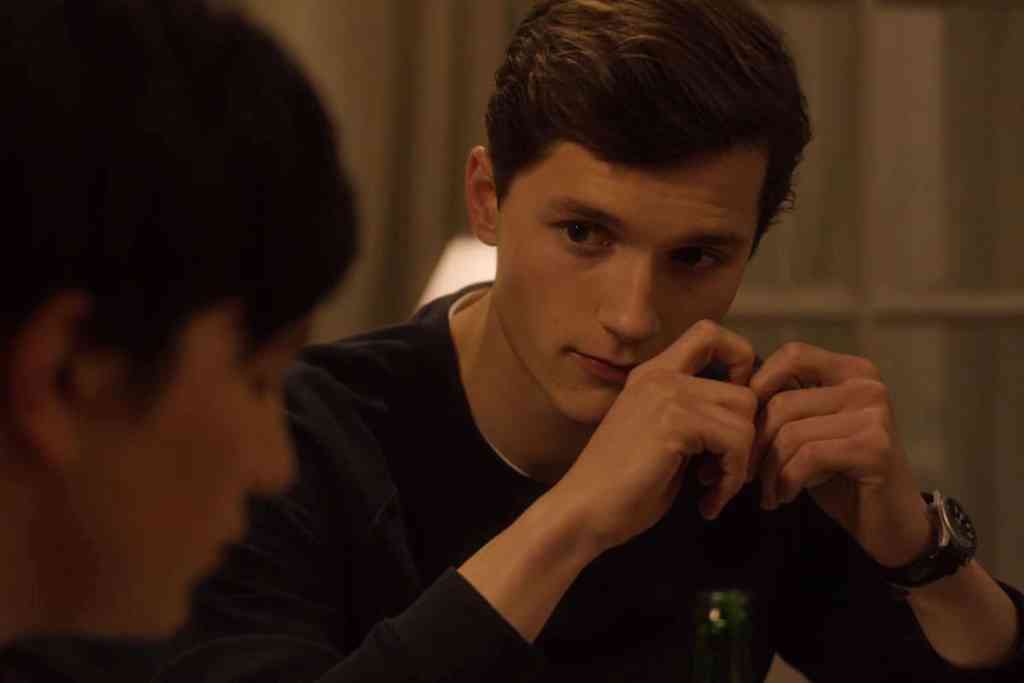
FOOTING (Director Damien Gault)
Following a difficult break-up with his partner in Paris, Marco has returned home for a weekend with his parents. However, Marco’s relationship with his father, Jean-Claude, has proved difficult ever since he came out and moved to Paris. Therefore, on a cold, frosty morning, with his mother’s encouragement, Marco agrees to go on a long 5K run with his dad. But can the fresh air, countryside and space finally bring a father and son together? Or will the barriers erected between them over many years prove to be impenetrable? Gault’s beautifully filmed and performed short film layers delicate comedy with unbridled honesty as it explores the unspoken love between a father and son. Here, Gault explores how, coming out, distance and emotional insecurities can build barriers over time that can be difficult to dismantle once they are erected. But even more powerful is Footing’s discussion of age, forgiveness, and the importance of communication.
THE SWIMMING TRUNKS ‘Le maillot de bain’ (Director: Mathilde Bayle)
At what age did you discover your sexuality? For some, it was during our early teenage years in a blaze of desire. For others, including me, it was in our childhood that we began to realise that our feelings differed from those around us. Thinking back to when I was nine or ten, these first feelings were confusing, random and wrapped in fear and excitement; for example, I remember loving Harrison Ford as Indiana Jones, but unlike the other boys at school, I didn’t want to be him; I wanted to be with him. Equally, I remember seeing The NeverEnding Story at the cinema and obsessing over Noah Hathaway, cutting his picture from magazines and newspapers without knowing why. These early desires were never fully sexual, but they were urgent and perplexing.
Mathilde Bayle’s stunning, brave and beautiful short explores these first feelings of attraction and confusion with a rare realism and sensitivity. On a family camping holiday, 10-year-old Remi spends the long summer days avoiding his family in the campsite swimming pool or at the nearby beach. It’s clear Remi feels different to the other kids and distant from his father and mother, but he doesn’t know why. However, when Remi meets a young girl called Lea, his feelings are thrown into a world of confusion. Now, at this point, I know what you are thinking: Remi is attracted to Lea. Well, you’re mistaken, for Remi’s new obsession is Lea’s dad, Stephane. However, Remi cannot explain or understand these new feelings and emotions as he steals a pair of Stephane’s swimming trunks.
The French Boys: Volume Three
Watch now on Amazon, Vimeo and Peccadillo Pod.
FAIRYOCIOUS ‘Féeroce’ (Director: Fabien Ara)
Here’s a question for all the parents out there: how did you encourage an open, inclusive environment for your kids growing up? Did you allow your children to explore their gender and sexuality free from ridicule and fear? Or did you place barriers in their way? Many parents unknowingly and knowingly impose their beliefs and ideals on their children every day; for example, they have open conversations about possible girlfriends in front of their boys, in turn placing an expectation on their boys that it’s a girl who should be brought home when they are ready. Equally, many parents openly make statements to their kids during their formative years about how awful it must be to be gay or how lucky they are their kids are straight.
These statements place pressure on a child or teenager to conform to their parent’s wishes. They force a child or teenager into the closet. Fabien Ara’s beautiful short explores these parental reactions and fears as eight-year-old Simon insists on going to school dressed as a fairy. His mum, Alma, is petrified by the very thought of this and immediately begins to wonder whether her son might be gay, trans or bisexual. Seeking advice, Alma turns to her neighbours, but when conversations start to embrace long-held yet often silent homophobia, it’s Alma who must ultimately decide whether to support her son or let her fears eat away at their loving relationship. Ara’s short is sumptuous in its design as the cinematography plays with an almost alien-like transformation occurring in Alma’s apartment block, while the relenting score of drums talks of ritual, war and survival. But it is in its delicate yet sharp discussions on parenthood, inclusion and support that Fairyocious truly finds its voice.
THE GRAFFITI (Director: Aurelien Laplace)
How would you react if some graffiti suddenly appeared on a building in your neighbourhood that included your name? I guess, for many of us, the answer would be, “it depends on what it says about me.” This is the situation faced by the mayor of a small village in rural France when he awakes to find his name scrawled on a historic building in the centre of the town. But, even worse, the graffiti accuses him of engaging in oral sex with the village doctor! Desperate to resolve the situation, the mayor heads over to the local surgery to enlist the doctor’s support in having the graffiti removed. However, the doctor finds the whole situation quite funny, especially the idea of the mayor giving him a blow job. The doctor quickly tells the mayor to accept it and move on, accusing him of homophobia. But what if the tables were turned and it was the doctor accused of giving the mayor a blow job?
Laplace’s superb nugget of situation comedy may feel light and frivolous. But at its heart, it asks us to explore themes of dominance and subservience in men’s attitudes toward sex and sexuality. Here, the person accused of giving the blow job is the centre of attention, not the person receiving it. For many gay men, this situation will chime with their own experiences of apparently ‘straight’ men who enjoy sex with a man as long as they remain the dominant partner.
EVA (Director: Florent Médina)
Sometimes, what we think we want isn’t what we need; after all, how many of us have thought a bottle of wine is the cure to our heartbreak only to discover it made things worse? All we needed was a shoulder to cry on or someone to listen to our woes. Sometimes, sex is the same; we think we need a physical act of pleasure when all we need is companionship and conversation. Young Gabriel believes that the answer to his insecurities and sexual questions may lie in a paid-for sexual adventure with a drag queen named Eva. But, when the sex doesn’t work as he had hoped, he finds important answers in their conversation and a fleeting yet essential hand of friendship. Médina’s beautiful and delicate short is wrapped in Gabriel’s need to find himself in the maze of sexuality that defines our teens and early twenties. Here, the answers lay in his ability to explore free from pressure and find his voice in an ocean of doubt and insecurities, with Eva an unlikely yet essential ally on his road to self-discovery.

A NEW BREATH ‘Second souffle’ (Director: Nina Parent)
We all deal with grief in our own unique way. For Gabriel, his brother’s death led him to pick up the video camera he left behind. His days are now spent filming everything around him as his mother’s depression grows ever deeper. But, Gabriel’s filming hides a secret as he struggles to define his sexual orientation, place and purpose. Here, Gabriel’s camera is a mere extension of the complicated emotions he keeps locked away and his need for sexual expression. However, on meeting a stranger at a local beach, the camera is finally replaced by touch, dance and sex, as Gabriel finally sees the world afresh through his own eyes rather than a lens. Parent’s beautifully shot short carries an almost dreamlike intensity as a single event sparks the growth of a new world. Here, it’s often tricky to ascertain what exists in Gabriel’s imagination and what plays out in reality as grief, desire, and loneliness collide on the sunshine-drenched French coast.
MASCULINE (Director: Zoé Chadeau)
Over the years, when I used gay dating apps, one problem constantly stood out as I flicked through profiles. This problem is engrained in online hookups and may explain why people often feel even more lonely now than in our pre-Grindr days. But let me explain; we all have our unique tastes and desires. However, the online world has allowed us to use these as barriers to conversation. After all, how many times have you seen statements such as “not into Black or Asian men”, “no one over 30,” or “masculine men only.”
These statements immediately cause division and limit our potential relationships and friendships. They are statements people would never dare say in a pub if someone at the opposite table struck up a conversation, yet online, it’s OK! Now, at this point, I freely admit that I may be getting carried away; after all, Zoé Chadeau’s delightful short does not touch upon the problems of online gay communities. But it directly talks to the self-imposed barriers gay men create, obstacles that often prevent us from finding that special person. Here, Arthus and Marin find something unexpected in each other’s company following a drunken hookup, the first flurries of possible love. But can they put their stereotypes of each other to one side in allowing this spark to become a fire?
THE TIGHTROPE WALKERS ‘Les équilibristes’ (Director: Gilles Tillet)
Bringing The French Boys: Volume Three to a close is the brilliant comedy/drama The Tightrope Walkers. Vincent spends his weekends at the beach with his two best friends and housemates. There, they stare at the local talent before deciding who to try and catch for some weekend fun. But when Vincent meets the older Jean-Christophe, his plans of a quick, no-strings liaison result in a crisis of both men’s making. Gilles Tillet’s delightful short wraps the journey of Vincent and Jean-Christophe in an engaging and fresh situation comedy while exploring important themes of sex, honesty and communication. There isn’t much more to say without ruining the themes at the heart of The Tightrope Walkers. But, trust me, Tillet’s film is a pure joy as two men divided by age and experience find a new connection through a shared drunken mistake.
The French Boys: Volume Four
Watch now on Amazon, Vimeo and Peccadillo Pod.
So, after four months of exquisite short films, here we are at the end of The French Boys quadrilogy. I am sure you will agree it has been quite a journey, taking us from the streets of Paris to the French coast, with each short offering us a delightful window into gay life and French culture. NQV’s perfectly curated collection has taken us from teenage longing to marriage and comedy to romance and drama. But all good things come to an end, and The French Boys: Volume Four tops off the collection with a neat bow. However, those hoping the final collection would match the brilliance of volumes two and three may come away slightly disappointed, as while promising, some of these shorts never quite rise to the standard of our middle two sets. But that is a minor quibble, and there is still much to be admired in volume four.
DISCREET ‘Scred’ (Director David Chausse)
Sometimes, all you need is 6 mins to summarise male emotional intelligence and the concept of bromance. Now, you may think I am being flippant with this comment, but I assure you I am not, and Director David Chausse proves it with his delightful 6-minute play Discreet. The premise is simple: two young men from the same neighbourhood meet on a bench and start talking about the night before. However, as the conversation turns sexual, their simmering desire grows before being quickly extinguished when the flames begin to show. There is a raw honesty in Chausse’s work that perfectly encapsulates the concept of bromance and the barriers men erect to ensure another man never gets too close.
DISTINGUISHED FEELINGS ‘Sentiments distingués’ (Director Keren Marciano)
There is an air of Wes Anderson in this delightful comedy of errors alongside a 1930s screwball comedy aesthetic. Meanwhile, Marciano also draws from L’amour fou in a narrative journey that sees the middle-aged and married Elena create a ploy to test her boyfriend, Arturo. Elena has heard rumours that Arturo plans to leave her; therefore, she decides to set him up with a man rather than see him leave with another woman. Enter Bastien, a young actor she pays to seduce Arturo. However, Elena is devastated when her plan goes slightly awry, and both men fall in love, leading to a genuinely uncomfortable wedding.
RUE DES ROSES (Director Patrick Fabre)
Rue Des Roses takes us back to many of the themes found in volume one’s So Long Paris as we explore the challenges of introducing your child to a new same-sex partner following the break up of a heterosexual relationship. Here, Mehdi, his young daughter and his new partner Axel meet on Father’s Day, with his daughter less than enthused about Axel’s presence despite the gifts he has brought her. However, unlike So Long Paris, we then jump forward in time to explore the family relationship many years later. Fabre demonstrates how time, patience and understanding slowly mend the damage of painful family separation. However, if you are left feeling the resulting short is slightly too perfect, you would be right, with the overarching narrative lacking the depth and beauty of So Long Paris.
FIRST LOVE ‘Premier amour’ (Director Florent Gouëlou)
Our careers often have a devastating impact on the relationships we sow. In my own life, my working hours and commitment to jobs often led to relationships falling apart when I was younger. However, the older you get, the more you realise that work is a mere tool for income and it should never dictate your life, love or happiness. For Paris drag star Cookie Kunty, all eyes are fixed on her nightly performances, but for her boyfriend Baptiste, tonight’s the night when he plans to walk away. Gouëlou’s short film frames a single moment in which one person realises their presence comes second to performing, and the other realises that their performance comes second to love.

THE EDGE ‘4 Fromages’ (Director David Chausse)
Chausse’s second short film in this collection is undoubtedly the stand-out piece of The French Boys: Volume Four. Chausse asks us to reflect on the behaviours, stereotypes and perceptions that divide us in a two-person play set on a rooftop. In this delightful, thought-provoking and beautifully performed short film, we find two young men – a dancer and a pizza delivery man – trapped on the rooftop of an apartment building. However, sparks fly as both young men interact, one an aspiring dancer who rejects gender conformity and the other an aspiring app developer stuck in a mundane, low-paid job. But maybe they have more in common than they initially thought, and the rooftop encounter is the start of a friendship rather than a clash of two opposing worlds.
WITHOUT TRANSITION ‘Sans transition’ (Director Paul Granier)
Love is never easy; it requires us to open ourselves up to another and accept the possibility of heartbreak. For many, a past heartbreak prevents them from moving on, its presence akin to a stormy cloud that follows each interaction and possible encounter. Young Leo leads a quiet life and is nervous about allowing himself to love again. But when he meets a stranger named Thom, Leo’s life is turned upside down as he debates whether to stay hidden under the cloud that follows him or finally allow the sunlight to come streaming through. Grainer’s short film is a delight mainly due to its realism as we witness Leo finally find the confidence he thought had vanished long ago.
FRAGILE ‘Babtou fragile’ (Director Hakim Mao)
Fragile has brief moments of inspired discussion on themes of identity, race and culture in the world of gay dating apps. However, the end feels deeply problematic, as the shy Mehdi accepts that he must change his image to appeal to a man who appears to be blatantly racist. In Mao’s short film, Mehdi is painted as being uptight, picky and shy, playing into stereotypes that gay sex can only be found by being confident, bold and easy. The result is a confused film that shines in its central performances but sadly plays fast and loose with themes of identity, race and acceptance. Here, casual gay sex is about adjusting yourself and your expectations to fit in, a message we should and must move beyond.

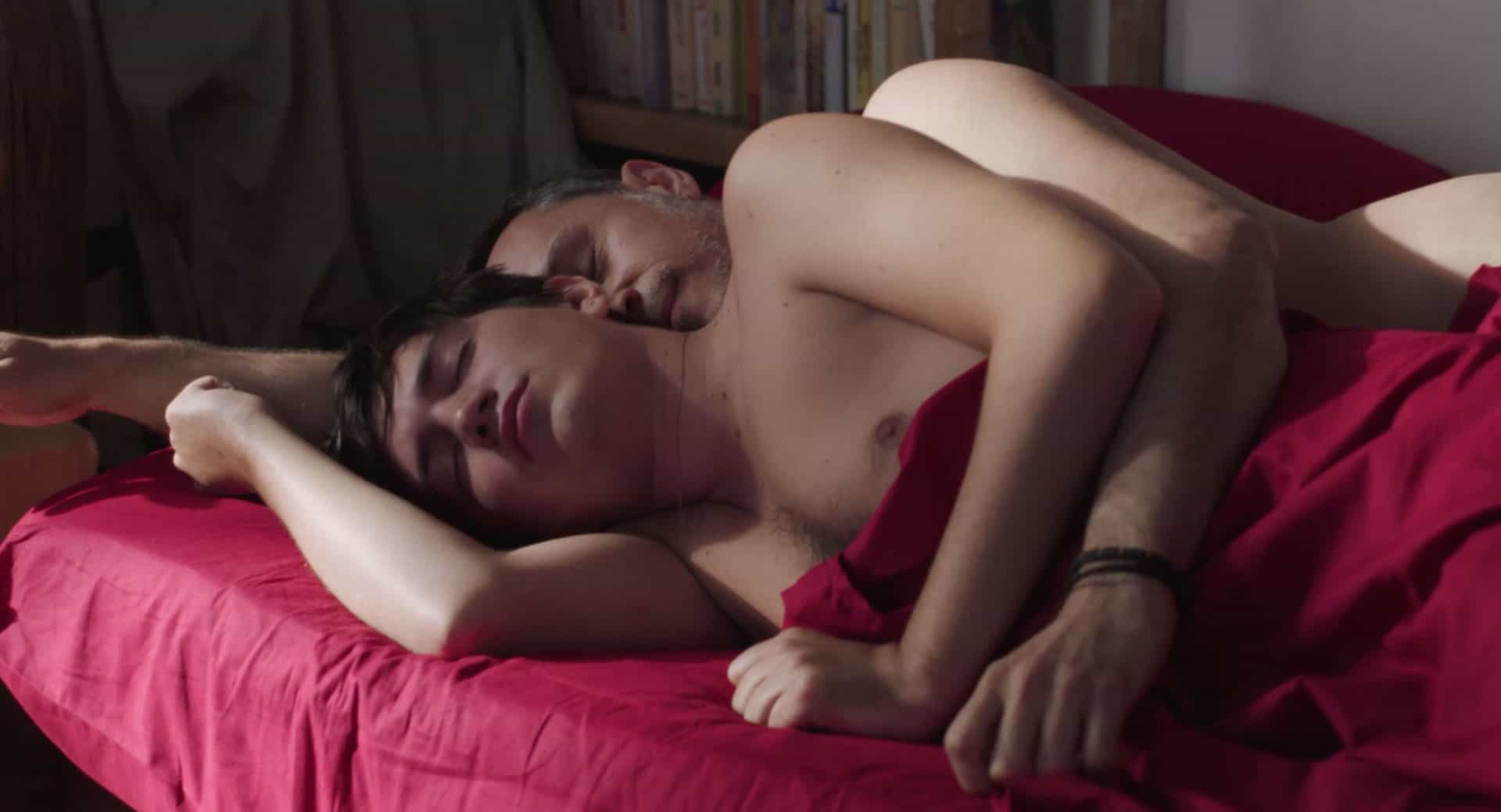






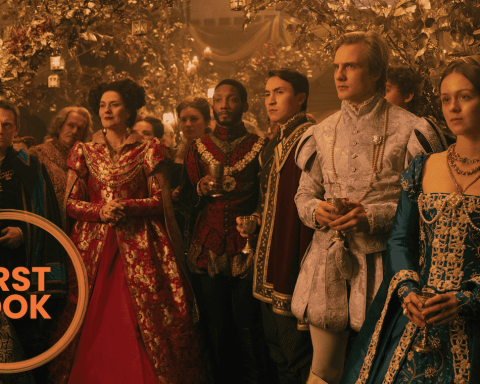
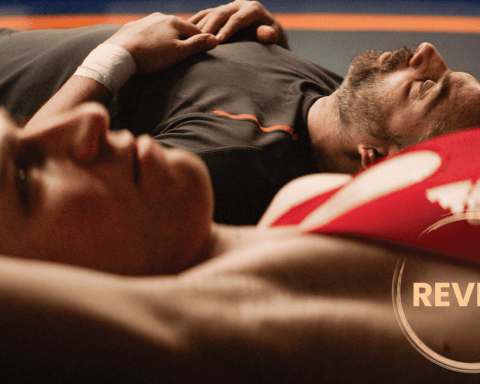
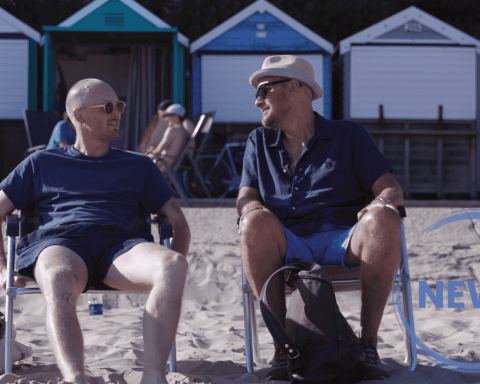


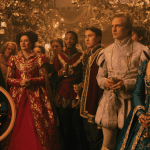
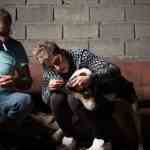
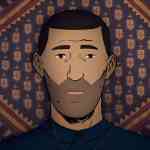
You must be logged in to post a comment.